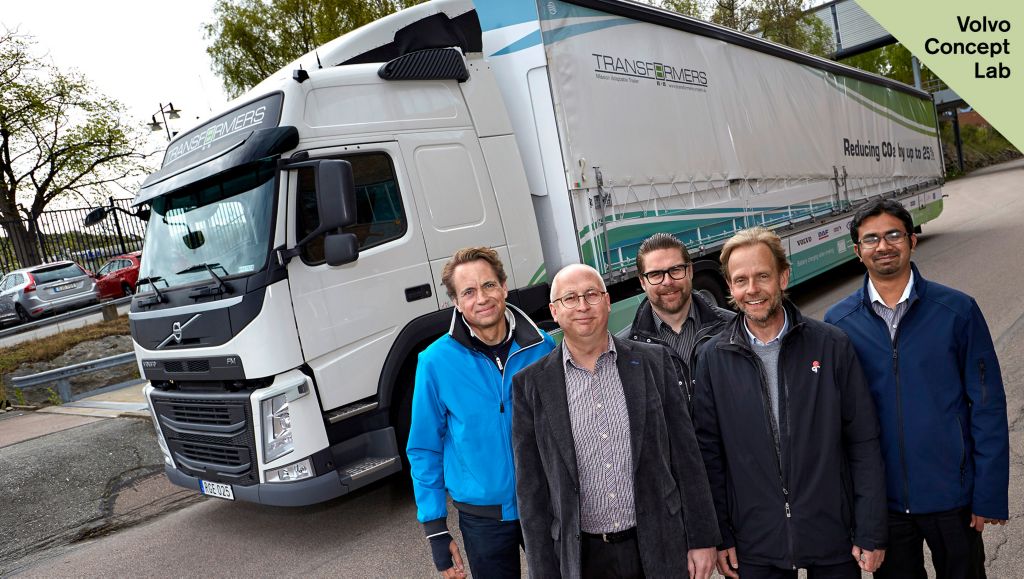Unique project will reduce energy consumption


Nearly half of all goods in Europe – 40% – are transported long distances by road on pallets.
“For our customers it’s important to transport the greatest possible quantity of goods at the lowest possible cost,” says Jonas Gadolin, manager specialising in long haul transport solutions who together with Paul Adams is involved in the EU co-funded TRANSFORMERS research project.
TRANSFORMERS was launched in 2013 and involves a consortium of 13 different partners with a range of expertise. Among the other project members are trailer manufacturers, electrical component suppliers and a range of major transport organisations and research centres.
The aim is to reduce the energy used to transport goods by up to 25%. This is expected to be achieved via a series of innovations. Although these are primarily on the trailer rather than the truck, Paul Adams believes it is nonetheless important for the Volvo Group to be involved in research projects like this one.
“While we have no plans to start making trailers this represents a way to look at the complete transport solution and make goods transport as efficient as possible for our customers,” he explains.
The project involves two vehicles. On one vehicle the focus is more on energy efficiency, while on the other it is on load capacity optimisation including a multi-section double floor system which is a large benefit for the transport of mixed goods. The energy efficiency trailer is propelled by an electric machine which also recuperate braking energy while the conventional truck remains diesel-powered. The engine and the battery are installed underneath the trailer to take up as little space as possible and not affect the capacity of the trailer.
“It’s a big challenge to get the truck and trailer systems working together. When the driver brakes, for instance, that charges the battery in the trailer, which provides additional energy that can be used later when going uphill,” Paul Adams says.
The two trailers have been constructed with unique moveable roofs to allow different aerodynamic configurations to be investigated, and is one of the key innovations of the project. Sensors in the trailer roof can indicate the height of the load. The driver can then use a control on the side of the trailer to raise or lower the height of the trailer to a configuration best suited to the particular load, which in turn reduces air resistance.
The design of the trailer itself has also been investigated.
“Among other things some simple physical modifications within current legislation gained space inside the trailer enabling our customers to transport at least 3% more goods. It also represents the multi-faceted apporoach of the project from very simple but ingenious innovations through to complex control systems”, says Paul Adams.
Both TRANSFORMERS vehicles are currently being tested around Europe, and the project is due to conclude this summer with a final conference. Both Paul Adams and Jonas Gadolin are very satisfied with the results so far.
“There are a number of exciting innovations that together make a big difference for our customers. We expect to achieve our objective of reducing energy use by 25% in terms of the goods transported,” Adams says, adding how inspiring he finds the collaboration with the other stakeholders.
“The enthusiasm and engagement from all sides is enormous. Working in this collaborative way with many enthusiastic partners is a fantastic experience,” he concludes.
More information about the project and more technical details can be found on the Transformers website.
Facts
In addition to Volvo Group TRANSFORMERS involves 12 separate partners:
Bosch Group, DAF, FEHRL, Fraunhofer, IFSTTAR, Uniresearch BV, IRU Projects ASBL, P&G, Schmitz Cargobull, TNO, Van Eck and VIRTUAL VEHICLE Competence Center (ViF)